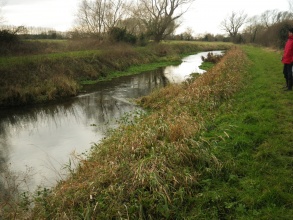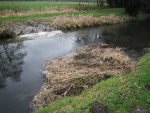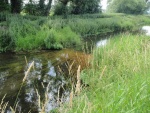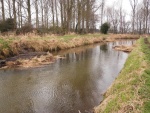Case study:Nar SSSI project: Difference between revisions
No edit summary |
No edit summary |
||
| Line 12: | Line 12: | ||
|Themes=Hydromorphology, Monitoring, Spatial planning | |Themes=Hydromorphology, Monitoring, Spatial planning | ||
|Country=England | |Country=England | ||
|Main contact forename= | |Main contact forename=James | ||
|Main contact surname= | |Main contact surname=Holloway | ||
|Contact organisation=River Restoration Centre | |Contact organisation=River Restoration Centre | ||
|Contact organisation url=www.therrc.co.uk | |Contact organisation url=www.therrc.co.uk | ||
Revision as of 13:51, 18 October 2013
Project overview
| Status | Complete |
|---|---|
| Project web site | |
| Themes | Hydromorphology, Monitoring, Spatial planning |
| Country | England |
| Main contact forename | James |
| Main contact surname | Holloway |
| Main contact user ID | |
| Contact organisation | River Restoration Centre |
| Contact organisation web site | http://www.therrc.co.uk |
| Partner organisations | |
| Parent multi-site project | |
| This is a parent project encompassing the following projects |
No |
Project summary
The existing river was an artificially wide channel with virtually no gradient. The existing wooden flow deflectors installed between 2002 and 2003 were insufficient in their attempts to enhance flow diversity. The project successfully narrowed the river through the construction of artificial berms mimicking those found naturally and the excavation of pools.
Monitoring surveys and results
Lessons learnt
Image gallery
|
Catchment and subcatchmentSelect a catchment/subcatchment
Catchment
Subcatchment
Site
Project background
Cost for project phases
Supplementary funding informationThe entire project, covering 1 km of channel, was delivered by a team of 3 people in less than 3 days and for under 3 thousand pounds. Accordingly, although early days, it seems that the Nar SSSI project can be viewed as a successful low-cost ‘quick win’ project in a constrained site.
Reasons for river restoration
Measures
MonitoringHydromorphological quality elements
Biological quality elements
Physico-chemical quality elements
Any other monitoring, e.g. social, economic
Monitoring documents
Additional documents and videos
Additional links and references
Supplementary InformationEdit Supplementary Information
| ||||||||||||||||||||||||||||||||||||||||||||||||||||||||||||||||||||||||||||||||||||||||||||||||||||||||||||||||||||||||||||||||||||||||||||||||||||||||||||||||||||||||||||||||||||||||||||||||||||||||||||||||




